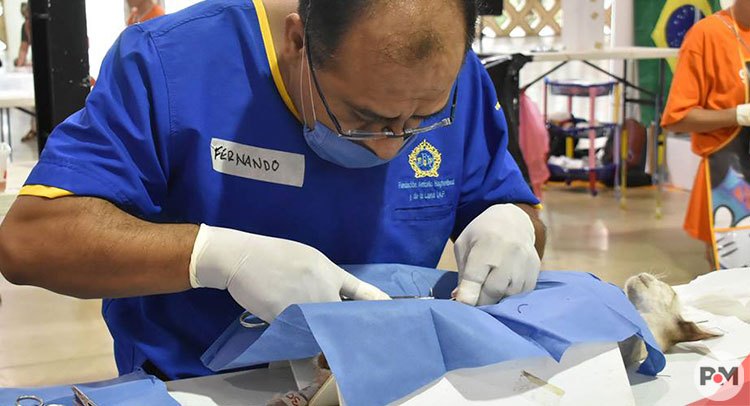The ninth edition of this program is taking place at the Yucatán Siglo XXI Convention Center…
With an investment of nearly 1.4 million pesos and the support of local and international organizations, veterinary professionals and a large number of volunteers, on Monday began the ninth canine and feline sterilization campaign in Merida for 2018.
In the effort, inaugurated by the Secretary of Health of Yucatan (SSY), Jorge Eduardo Mendoza Mézquita, 2,500 interventions will be made to dogs and cats.
On behalf of Governor Rolando Zapata Bello, the official gave recognition to Jeffrey Young, president of Planned Pethood International, and José Antonio Ríos Pérez del Valle, representative of the subsidiary in Mexico.
Accompanied by the Director of Prevention and Health Protection of the SSY, Manuel Paredes Aguilar, Mendoza Mézquita said that thanks to these efforts, which also involve the Franciscan Shelter of Unprotected Animal (AFAD), chaired by Ligia Saleh Angulo, and the Autonomous University of Yucatan (Uady), during this administration more than 29 thousand canine and feline sterilizations have been performed, which has prevented the birth of about half a million dogs and cats on the streets.
Finally, the representative of Uady, Antonio Ortega Pacheco, said that working hand in hand with these organizations is rewarding because the goal has been to seek co-responsibility of citizens and change the way of thinking that allows each pet to be affectionately cared for and not abandoned to its fate on the streets.
This ninth campaign, the largest organized in the state, according to the state official, is taking place in the Chichén Itzá room of the Yucatán Siglo XXI Convention Center June18-20. This adds to last weekend’s program in Progreso, where more than 700 surgeries were performed on dogs and cats. Before, a similar activity was also carried out in Valladolid.
Despite these efforts, it is estimated that 50,000 stray dogs and 14,000 cats are in the streets, so Mendoza Mezquita asked the public not to abandon their animals nor leave them at the doors of shelters that are struggling economically to keep functioning. The option is sterilization, he said.
Text: Manuel Pool
Photo: Courtesy






